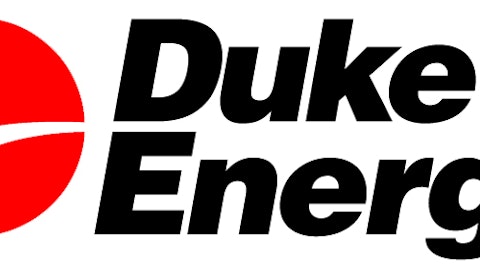Whether its success owes to the appeal of founder Elon Musk, or simply the fact that green energy is hot, SolarCity Corp (NASDAQ:SCTY) is one of the top-performing stocks in 2013. Recently, however, the stock has taken a breather, falling from over $50 in May to under $36. Is it time for investors to rethink their positions in the innovative solar stock?
What SolarCity does right
SolarCity Corp (NASDAQ:SCTY) isn’t a solar power company; it’s a specialized financier. The company leases solar panels to homeowners on a 20-year contract, with no up-front cost to its customers. The result is a predictable stream of lease payments to Solar City, as the contracts mature and homeowners make monthly payments.
The company couldn’t come at a better time. Incentives for solar-panel installations are huge. A combination of robust tax advantages and the ability to sell power back to the grid at higher rates makes now a perfect time to be a solar leasing firm.
SolarCity Corp (NASDAQ:SCTY) isn’t finding any difficulties in raising capital for expansion, either. In mid-May, the company inked a new $500 million round of financing from Goldman Sachs Group, Inc. (NYSE:GS) which will enable it to install 110 megawatts of additional power on residential homes.
Another bright spot is SolarCity Corp (NASDAQ:SCTY)’s foray into the wholesale business. The company announced that it now has the capacity to work directly with homebuilders to install panels at the time of construction. This should drive down marketing and sales costs, while improving its installation efficiency. SolarCity Corp (NASDAQ:SCTY) can file for solar permits at the same time a new home is constructed, removing delays that often top four months from signed contract to installation.
Where the electric business model sparks out
SolarCity Corp (NASDAQ:SCTY)’s business model is contingent on finding homeowners who are willing to lease their panels over a 20-year period of time. These homeowners aren’t easy to find, in part because a solar installation has to be properly timed with a customer’s roofing situation. SolarCity cannot install panels on a roof that will need replacing anytime soon.
Luckily, its recent financing deal with Goldman Sachs Group, Inc. (NYSE:GS) will expand the company’s market size. Previously, Solar City worked with homeowners who had credit scores of 720 or higher. Now, SolarCity believes it should be able to move down into the 650 range – a limit rapidly approaching the “subprime” credit score of 620 or lower.
Most homeowners have credit scores well above subprime, so the company’s new financing allows it to tap nearly all homeowners for a new solar lease and installation. But if SolarCity is such a compelling opportunity, why does it need to venture into lower-credit-quality customers so quickly?







